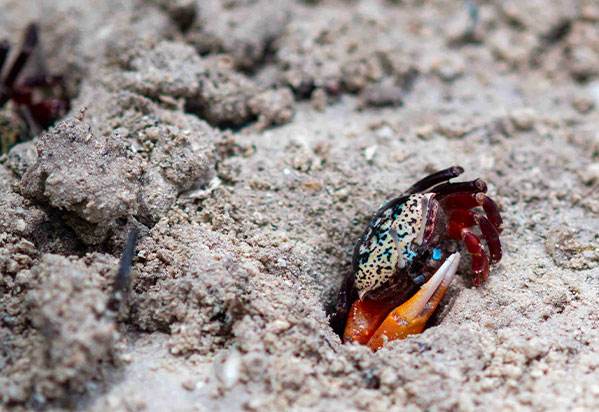
Beneath the Surface

hic clusters of bungalows that hover over crystal clear water. Secluded islets of pure white sand. Crescent-shaped beaches spotted with slender coconut trees. These are the iconic images of the Maldives.
But beneath the surface are even more striking scenes: A kaleidoscope of fish darting above a carpet of coral, inquisitive octopuses draped over craggy rocks, and majestic manta rays swimming through beams of underwater sunlight.
This magical world beneath the surface has been a lifelong inspiration to many, but none more than Shaahina Ali, a divemaster, conservationist, and photojournalist.
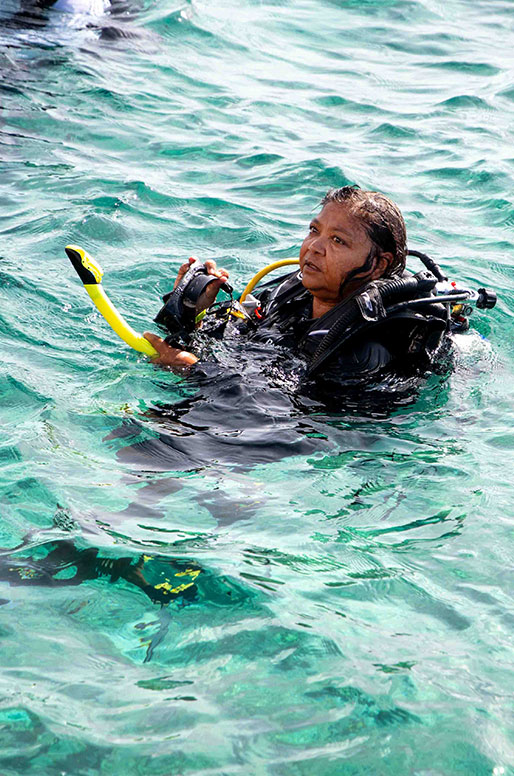
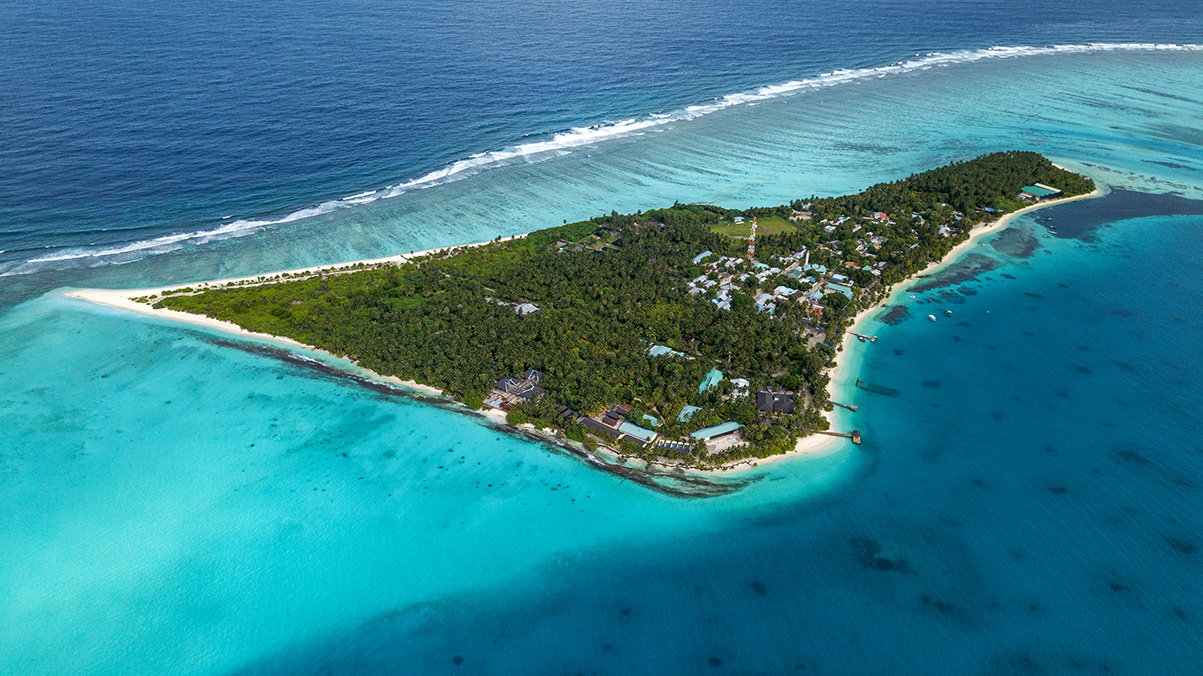

“The ocean fascinated me,” says Ali, who grew up in Malé, the capital of the Maldives.
“I tried to get to the beach as much as I could. I spent time with neighborhood kids playing in the water, learning how to swim, and catching fish. We also looked at seagrass and coral and collected shells.”
After her first scuba dive at age 13, Ali was hooked. She became a certified diver at the earliest opportunity, and this led to her opening the first dive school in Malé. Ali saw that not many Maldivians knew how to scuba dive, so she was keen to start certifying them so that they could also explore the beauty of their country.
Previously, dive centers were restricted to hotels, and scuba experiences were mostly only available to tourists. By opening a dive center that was focused on training locals, Ali spurred a homegrown passion for what lies beneath, and many of the newly certified divers became keen advocates for environmental protection.
“Most people spearheading the conservationist movement are divers, snorkelers, or recreational ocean users,” Ali explains. “They are the ones fighting for the reefs.”
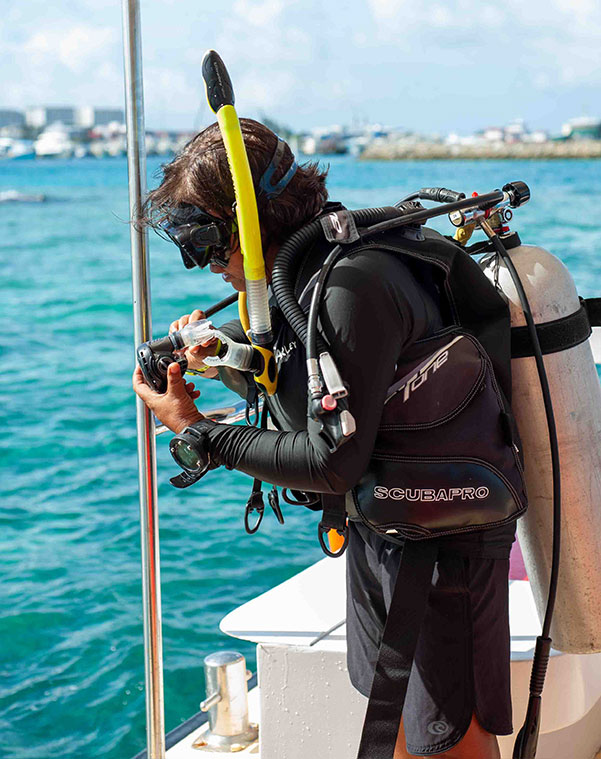
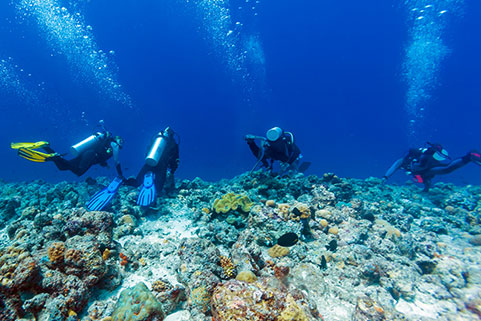

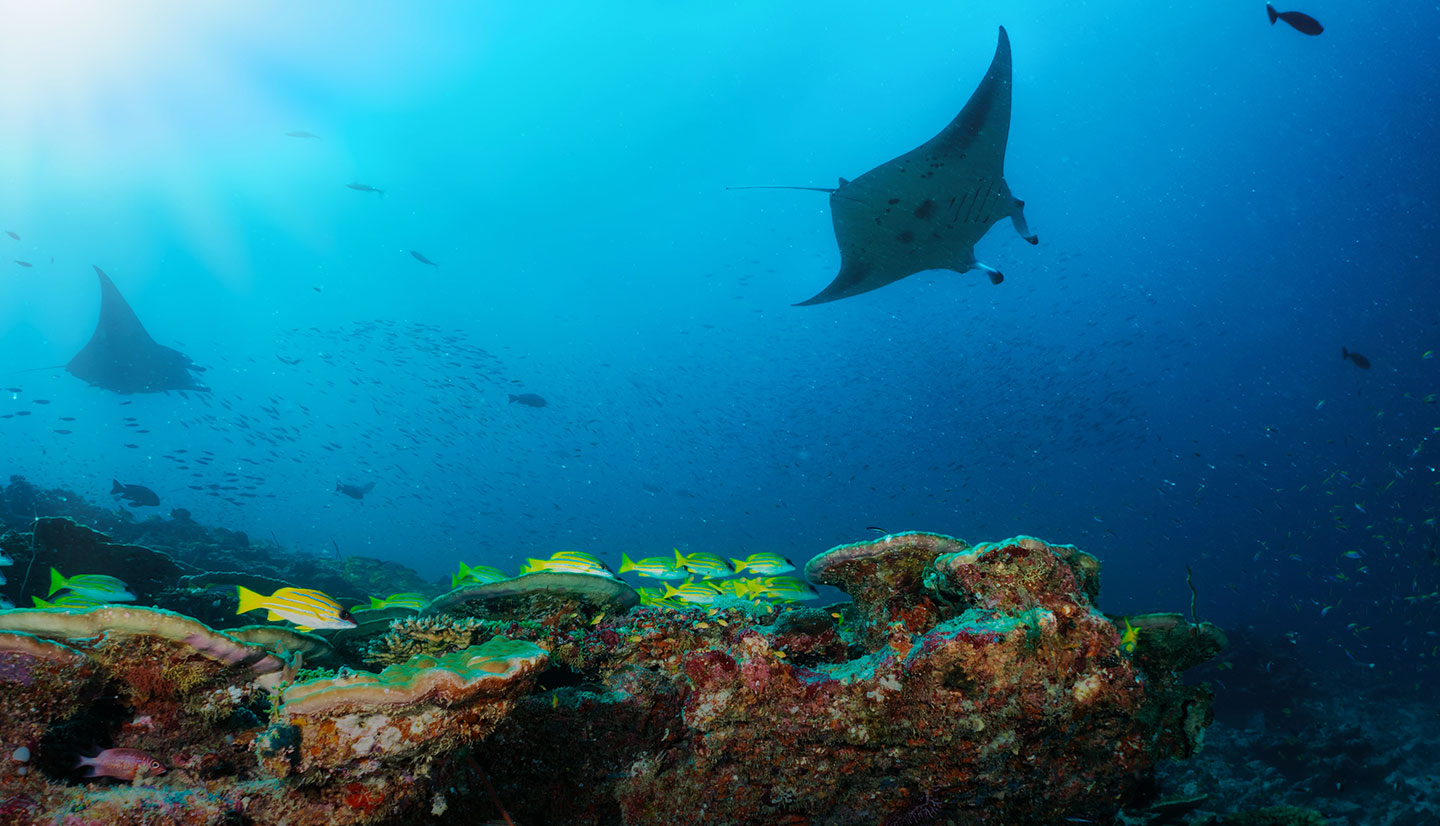

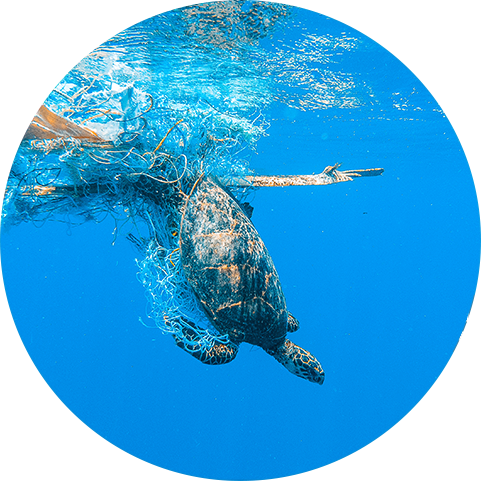
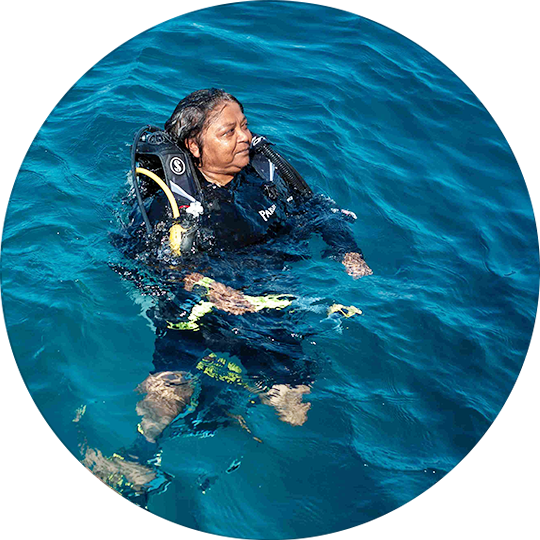
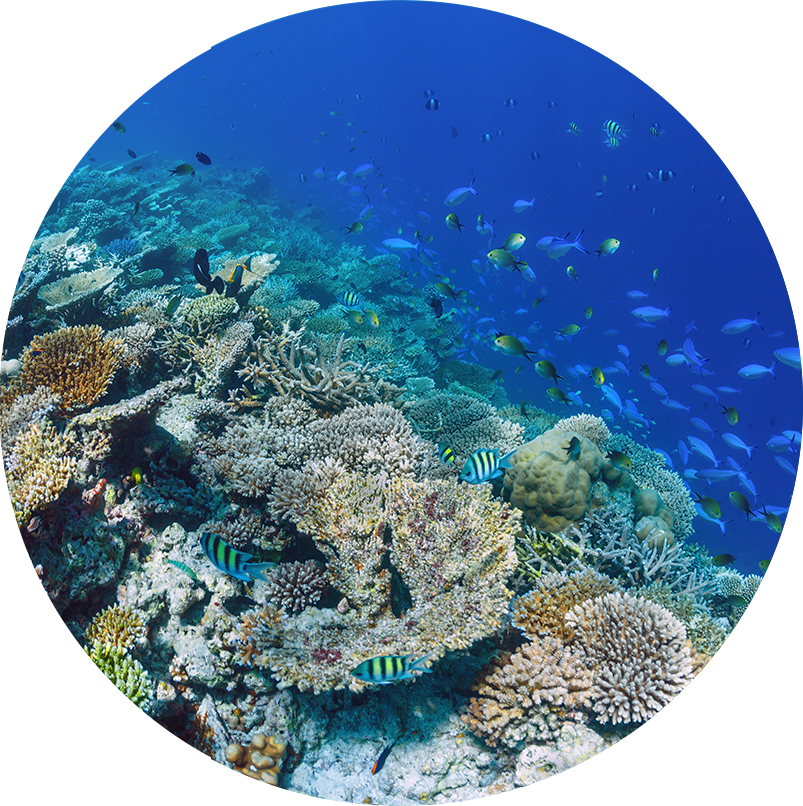



As director of Parley for the Oceans Maldives, an organization committed to marine conservation, Ali is also helping to inspire new conservationists.
She travels across the Maldives giving presentations on ocean conservation, with a heavy focus on educating children and young people, helping them to understand mankind’s connection to the ocean. Her work was instrumental in making it compulsory for all schools to take students to visit reefs, with the aim of nurturing a healthy relationship between locals and the ocean.
Underpinning Parley for the Ocean’s educational programs is their solution to marine plastic pollution. The AIR Strategy (avoid, intercept, and redesign) gets people thinking about avoiding plastic, intercepting the waste, and redesigning the material altogether. In 2018 they worked alongside the Ministry of Education to ban the use of single-use plastic in schools. “Parley for the Oceans helps people to understand that we need to own the problem and find solutions,” says Ali.
While sustaining a community of local environmentalists is leading to a positive change in attitudes in the Maldives, Ali recognizes that they cannot do it alone.
Tourism remains the Maldives’ biggest industry, and Ali believes that it can be harnessed for good, especially when it comes to diving.
For the diving community to develop and for environmentalism to thrive, “we need visitors to come from abroad and help support the industry,” she says. Through diving in the Maldives, visitors are supporting the very community that is working to protect life in the ocean.
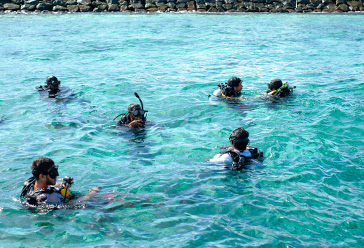
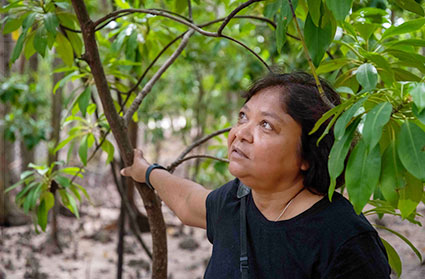
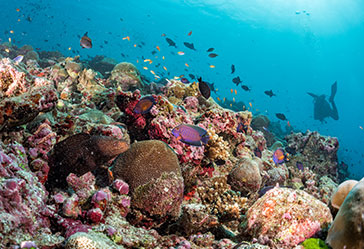
While sustaining a community of local environmentalists is leading to a positive change in attitudes in the Maldives, Ali recognizes that they cannot do it alone.
Tourism remains the Maldives’ biggest industry, and Ali believes that it can be harnessed for good, especially when it comes to diving.
For the diving community to develop and for environmentalism to thrive, “we need visitors to come from abroad and help support the industry,” she says. Through diving in the Maldives, visitors are supporting the very community that is working to protect life in the ocean.



After diving in the Maldives for decades, Ali has compiled a number of favorite dive spots close to Malé. To the north of the island city, Banana Reef, named for its curved shape, holds some of the most vivid coral in the world: A rainbow of pineapple yellow, grapefruit pink, and orchid purple. Okobe Thila, another nearby favorite, has abundant sea life, including gigantic manta rays. And south of the island city, the Embudu Express, so-called for its fast-flowing waters, grants opportunities to see hammerheads, barracudas, and guitar sharks.
The opportunity to experience nature and also do some good isn’t restricted to beneath the waves. To Malé’s Northeast lies the island of Huura, home to the Huura dynasty that previously ruled over the Maldives for over 200 years. Today it is better known for its protected mangrove swamp that not only provides an essential habitat for many unique birds, crabs and fish, but also helps protect the island from storms and coastal erosion. The area is a popular place for school trips, and for eco-conscious tourists looking to spot black tip baby reef sharks.
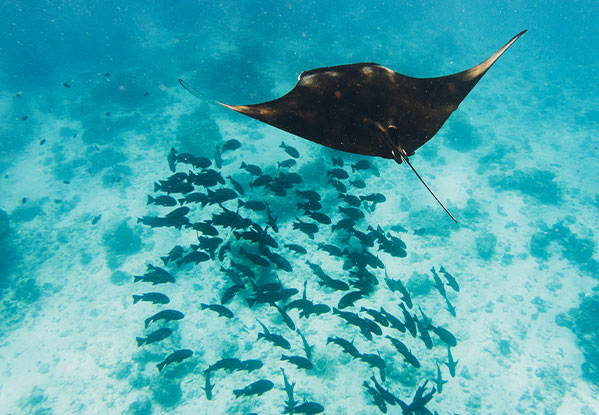
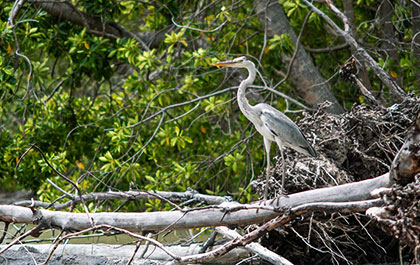
Shaahina Ali’s responsible travel tips:
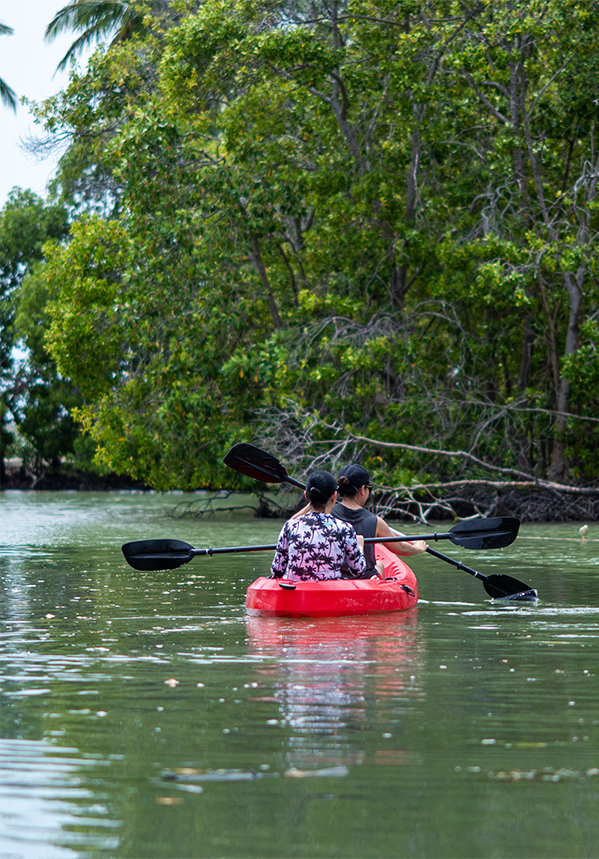
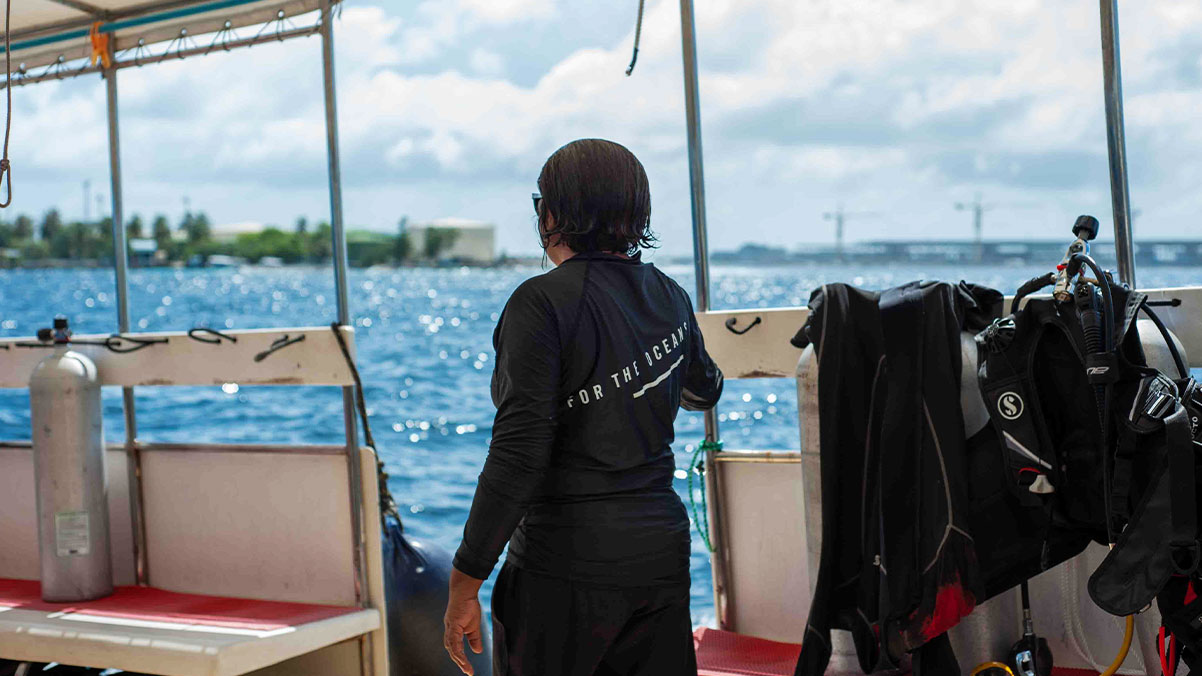

The future of the environment in the Maldives is a worthy concern, but there are reasons to be hopeful.
Despite being, as Ali puts it, “unimaginably challenging,” the Maldives government is now focused on the responsible disposal of waste by enacting policies such as banning the burning of trash and phasing out single-use plastics. Ali believes that if tourism is mobilized to support conservationist communities and the younger generations understand how to love and protect their environment, the future is already looking brighter.
